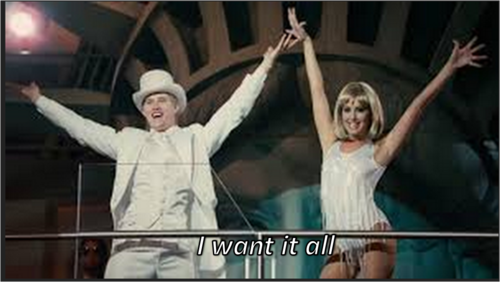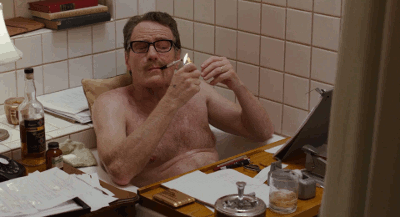In case you didn't know, I am a Christian. That being the case, I always wanted to make a film that talked about the things I love about God, I.E. a "Christian" film. But I was always afraid of doing it badly because that was the unfortunate reputation of Christian films. Even so, I finally got up the courage to go for it and in the process
I learned a lot about what I think makes a Christian film work and not work.
Since a lot of my fellow Christian filmmakers are right now in an ongoing conversation of the best ways to make Christian films, I thought I would add my two cents to the topic. This is not an exhaustive list and I’ve by no means learned everything. It’s just one more voice in the conversation based on my small bit of experience.
Watch it in the player below and then read on!
Since a lot of my fellow Christian filmmakers are right now in an ongoing conversation of the best ways to make Christian films, I thought I would add my two cents to the topic. This is not an exhaustive list and I’ve by no means learned everything. It’s just one more voice in the conversation based on my small bit of experience.
Watch it in the player below and then read on!
Spoilers, ahead, naturally.
SHARE WHAT YOU LOVE; DON'T TEACH WHAT YOU THINK
One reason I was nervous to make a Christian film was that Christian
films have a (somewhat) deserved bad-reputation for being too preachy.
Sometimes a Christian film will have a great scene and then they
will ruin it with too much talking. I
think this is because the Christians making these films think they’re job is to
teach people what to think about God when it's not. Your job is to share what you love about him.
Don't get me wrong, I love this movie, but man the
scene would have been so much better if they'd just
stopped talking at some point.
scene would have been so much better if they'd just
stopped talking at some point.
Imagine two lunch dates: one is with your mom and the other
is with your newly married best friend. Your mom is telling you that you should
get married and is listing all the reasons why you should and asking what
excuse you have for not being married yet. Your best friend is bubbling over
telling you how much they love being married and sharing all the details. The
first wants to tell you what to do while the second simply wants to share what
they already have. Which of these actually makes you want to be married? Both
make an argument for why you should get married but the latter you actually enjoy
and makes you desire it yourself.
My reasons for wanting to make Happy Never After were the latter, and that is the magic switch
that made me feel comfortable really talking about faith in film. I knew what
it was like to be afraid God wasn’t real in the face of death and I really
wanted to share how glad I was that he was real and that he made eternal happy
endings possible.
CS Lewis didn’t originally intend Aslan to be part of his
Narnia books; he didn’t write the books intending to preach a Christian
allegory. Aslan forced his way into the story almost against his will because
Jesus was part of CS Lewis’s imagination. That should be a strong model for how
we make Christian films too.


SHOW DON’T TELL
This goes back to the preaching thing. Films are—first and
foremost—a visual medium. That means the power belongs first in the images and
then the words. Christian films often try to preach the Gospel by giving long
speeches about it. But really, a picture is worth a thousand words.
I made a concentrated effort to make a lot of the theology visual. In my film, Ron’s “come to Jesus” moment is just a look toward the cross.
Do you think that moment works? Let me know. Regardless, it
was my attempt to apply the principle of doing faith it what is a primarily
visual medium.
LOVE FILMS FOR FILMS SAKE
This one is not as obvious as it sounds. It’s is not enough
to say that Christians should make films that are “high quality”. You won’t make a really great film unless you
are passionate about great filmmaking for itself and not just as a way to get
your Christian message to people.
I was blessed that everyone on my project not only loves
God, they love great films and great filmmakers. My DP and I would share movie
clips to each other from Terrence Malick and David Lowery films to inspire
shots in the movie. We all regularly read film education sites like No Film School and watched the amazing
film essay series Every Frame a Painting (example in the player below) because
they showed us great new ways to make great movies. If you’re a Christian and
you aren’t doing that because you enjoy it, you probably should serve God in
some other business.
HAVE A THEOLOGY CONSULTANT (OR TWO)
Audiences care both about a good story and a movie staying
true to the source material. This means if you're going to appeal to Christians--one of your main audiences--you've got to make sure you're not trampling on Orthodoxy that will unnecessarily cheese people off.
It was important to me that Ron and Mary came back as
messengers from God to kill Jacob Applegate at the end. Because I wanted people
to feel the thrill of the hero beating the villain to show that obeying God is
as thrilling triumph over evil as a typical hero adventure story. But my story
editor—Tessa Duckson, as strong Christian--was concerned that this would send
the wrong message about God condoning vengeance. We went back and forth and
decided that we needed to make clear that was not the case in three ways a)
make it clear they are coming back to save Sarah, b) set up their return by
having Jacob mention “God send a messenger to strike me dead”, and c) have them
wear their hoods while they kill Jacob to emphasize that they are acting on
their role from God and not as Ron and Mary.
This turned out to be a blessing because Ron and Mary
concealing their faces with hoods and then revealing themselves to Sarah when
they pull them off became a very cinematic touch. This goes to show that if you
wrestle with orthodoxy you can come up with an even better film than if you
just disregard it entirely.
So that's it. I hope, whether you're a Christian or not, you find some of that helpful in this if you ever decide to take a stab at dealing with faith in film. I certainly have much more to learn in that regard. (And I've learned so much more even since then.) And I look forward to being inspired by other great filmmakers--Christian and non-Christian--as I continue to work in this amazing medium that I love.
What have you learned trying to deal with faith in film? Leave a comment and let me know.
What have you learned trying to deal with faith in film? Leave a comment and let me know.
















